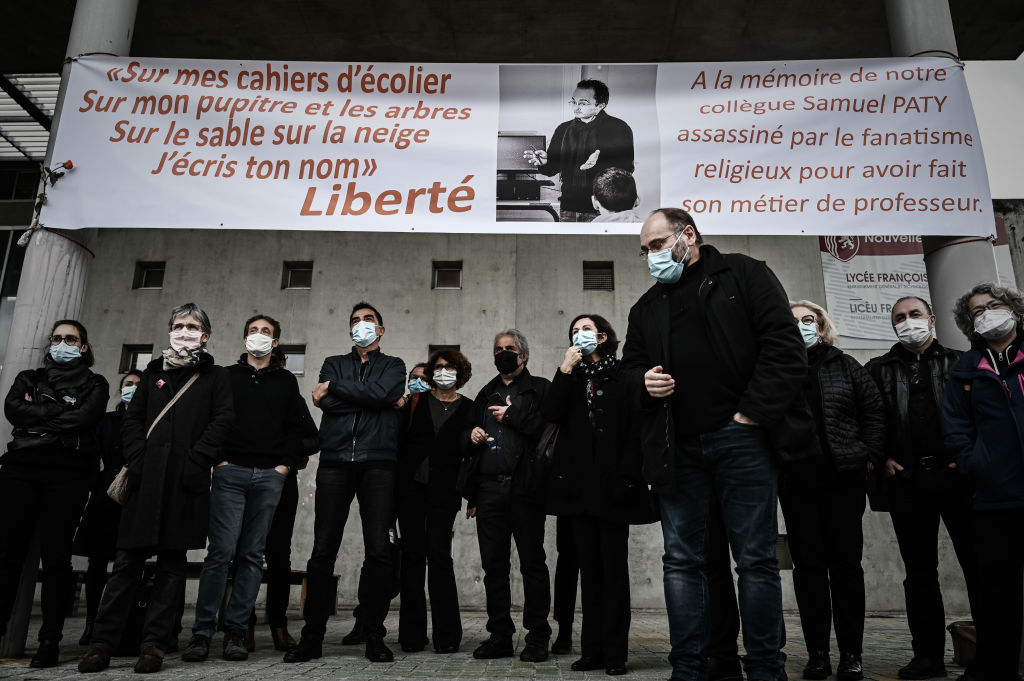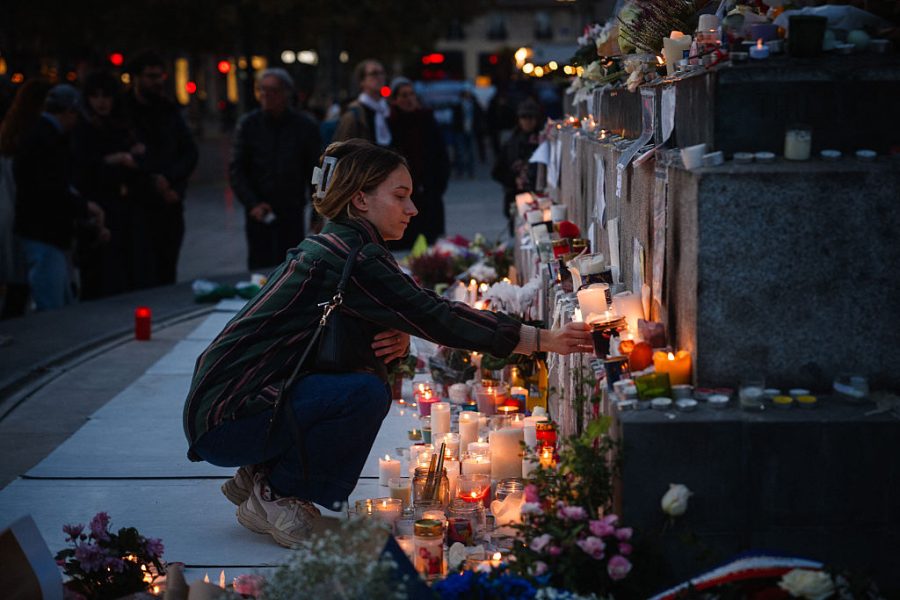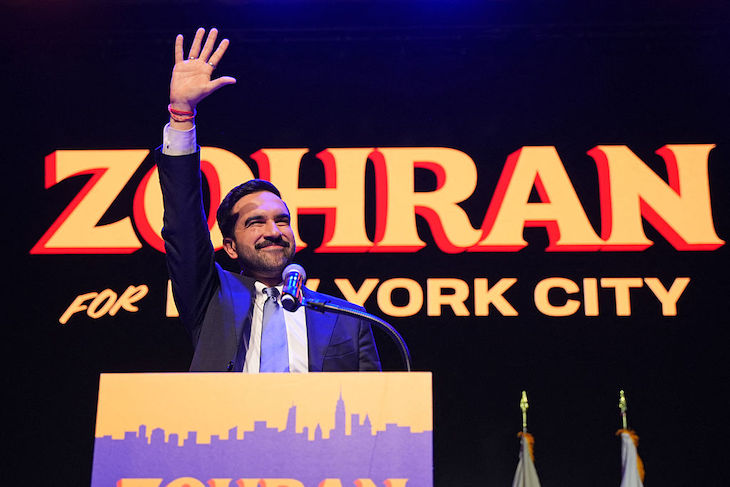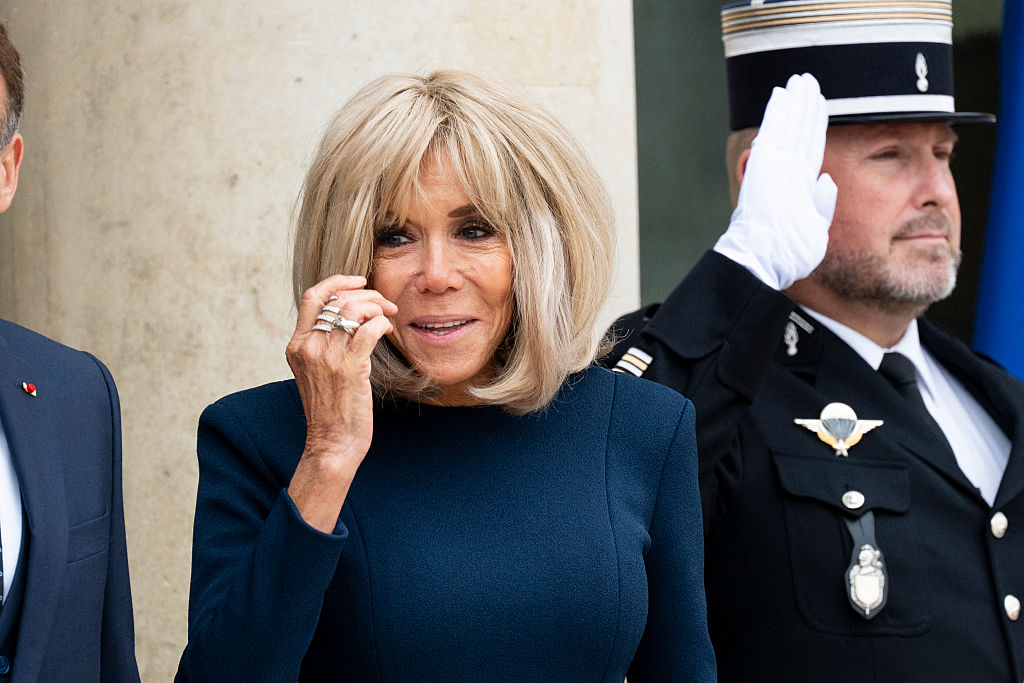The French were asking for it, weren’t they? All that laïcité is the political equivalent of a short skirt. What did Marianne think would happen if she went out like that?
The very act of being French, Politico tells us, ‘incites’ Muslims to murderous rage. A New Yorker writer explains that Charlie Hebdo cartoons are ‘effectively hate speech’, which effectively implies that Samuel Paty, the teacher who showed the cartoons to his pupils in a class on free speech, got what he deserved. The New York Times tells us that there are fine people on both sides: the real victims of Islamist terrorism in France are French Muslims, who are left feeling uncomfortable.
Not as uncomfortable as Simone Baretto Silva as she was stabbed to death in a church by a ‘migrant’ from Tunisia. Not as uncomfortable as Samuel Paty as his head was sawn off by an immigrant from Chechnya outside the school where he taught. But the deaths of these obscure foreigners must be minimized and the motives for their murder explained away.
We must avoid the worst discomforts of all: the creeping feeling that the world is not American. That the French, who are honorary Americans because of Lafayette and Julia Child, are in the kind of trouble that the French, being philosophical, call ‘existential’ — and that, just as the formation of modern European societies shaped the formation of the United States, so the fracturing of European societies foreshadows the unmaking of American society. Better to blame the victim whose murder carries the message we prefer to ignore.
‘Is France fueling Muslim terrorism by trying to prevent it?’ Vincent Geisser asks in the New York Times. You must be a white supremacist if you don’t already know the correct answer. It is an article of liberal faith that Muslims are uniquely prone to ‘rage’. They were incorrigibly ‘incited’ by European colonialism in the past, and so bear only diminished responsibility for any acts of savagery they may feel ‘incited’ to commit now and, we must presume, at any point in the future.
‘Mr Geisser is a political scientist,’ the Times tells us. In other words, shut up and agree with the expert. Mr Geisser, it seems, is a useful expert, the credentialed counterpart to the useful idiots who run the Times. In 2009, the French journalist Caroline Fourest called him ‘known for taking positions favoring radical Islam’. He went to court where, ironically, he claimed his freedom of speech was being infringed. Off with his head.
We must never ask why, if postcolonial ‘rage’ is the problem, that in Britain, with its substantial populations of postcolonial Hindus, Sikhs, Buddhists and African Christians, it is only Muslims who are ‘incited’ to chop off strangers’ heads. We must never ask if Emmanuel Macron, a generally ludicrous figure, is saying nothing more than the obvious when he asserts that Islam is ‘a faith in crisis all over the world’, and that, much as he understands the offense caused by French habits like cartooning and topless sunbathing, forcibly imposing the gender norms of rural Tunisia and the apocalyptic visions of the internet imam are, as they say in the banlieues of Paris, just not cricket.
[special_offer]
Such questions might lead to disconcerting conclusions about the ruling principles of public life in America: that race and gender matter above all else; that immigration, legal or not, is good for society; that the world divides into good guys and bad; that American civilization is history’s last word, and that the other 7.5 billion people in world can think of nothing better than to become Americans, so that they too may demonize their neighbors and bankrupt themselves by sending their children to colleges that teach an arcane variety of racialized Marxism.
All these thoughts might lead to the even more disconcerting conclusions. That the liberal consensus in America’s institutions, the volunteers of the media included, pushes a view of the world that is as false as Emily in Paris. That this fictitious moralizing might at times be as mendacious, to pick an example from the Times’s rich history of deliberately getting it wrong, as Walter Duranty’s false reports from the Soviet Union. That the liberal consensus imposes similar falsities at home, and that this substitution of dogma for historical reality is pushing American society and democracy down its own road to perdition.
The historical reality is that the older civilizations did not fossilize away as the Founders expected. The French remain certain of who they are: it is the Americans who are lost. The Charlie Hebdo cartoons are not ‘effectively hate speech’; the tradition of obscene political cartooning is effectively protected in French law. Laïcité is not identical to American ‘secularism’: both are 19th-century terms reflecting different conceptions of the relationship between church and state. Shockingly, the French manage to run a liberal democratic state while rejecting the hyphenations of American identity politics. They call that communautarisme and they see it, as Macron puts it, as ‘separatism’: just another path to bloodshed in the streets. They may have a point. But why think about Simone Baretto Silva in Nice when you can watch Emily in Paris?

























